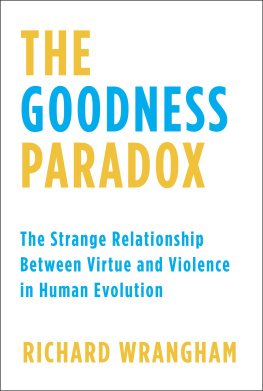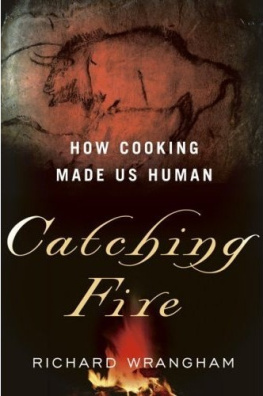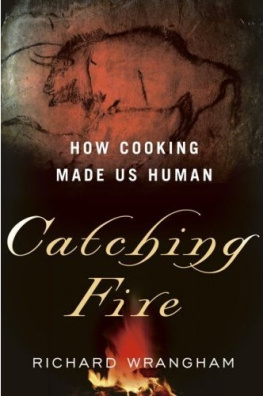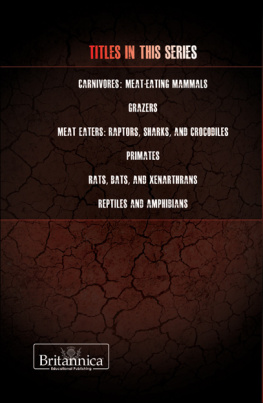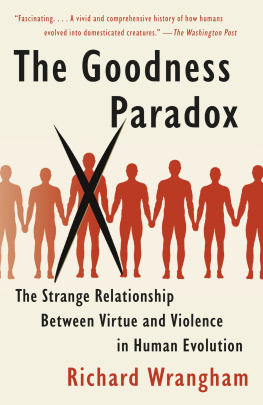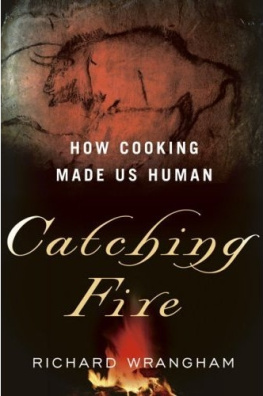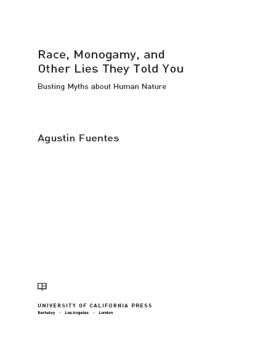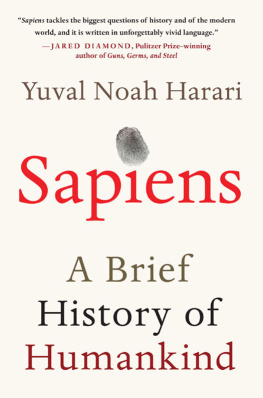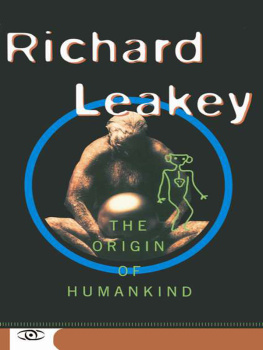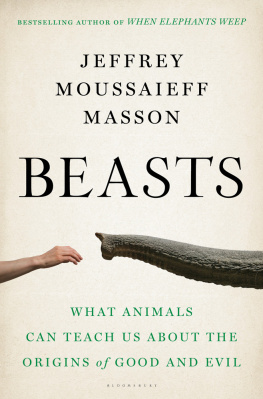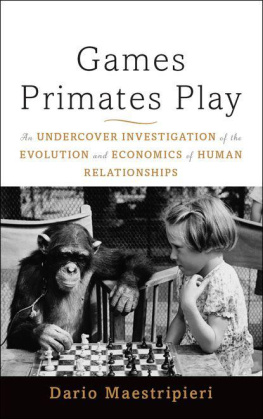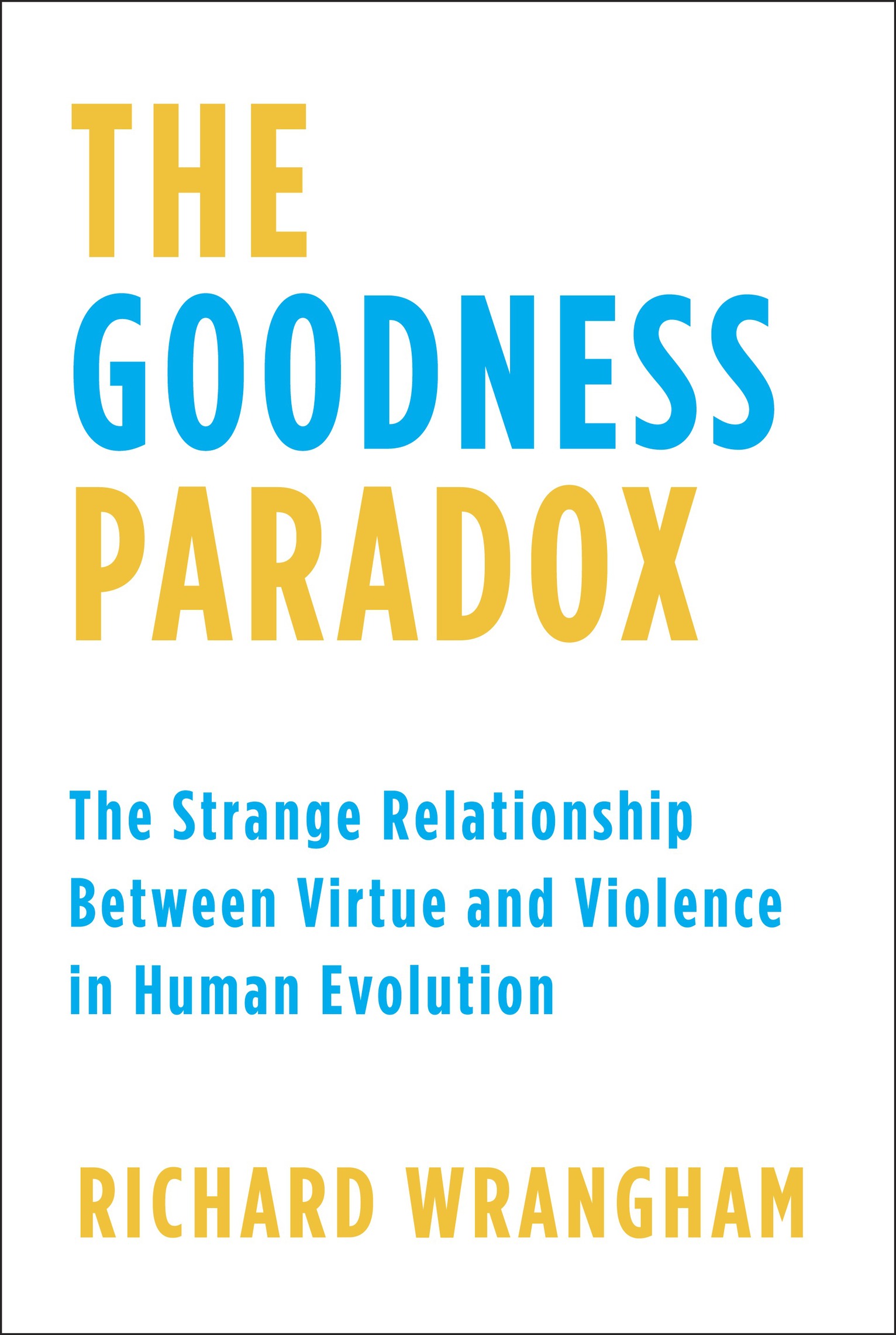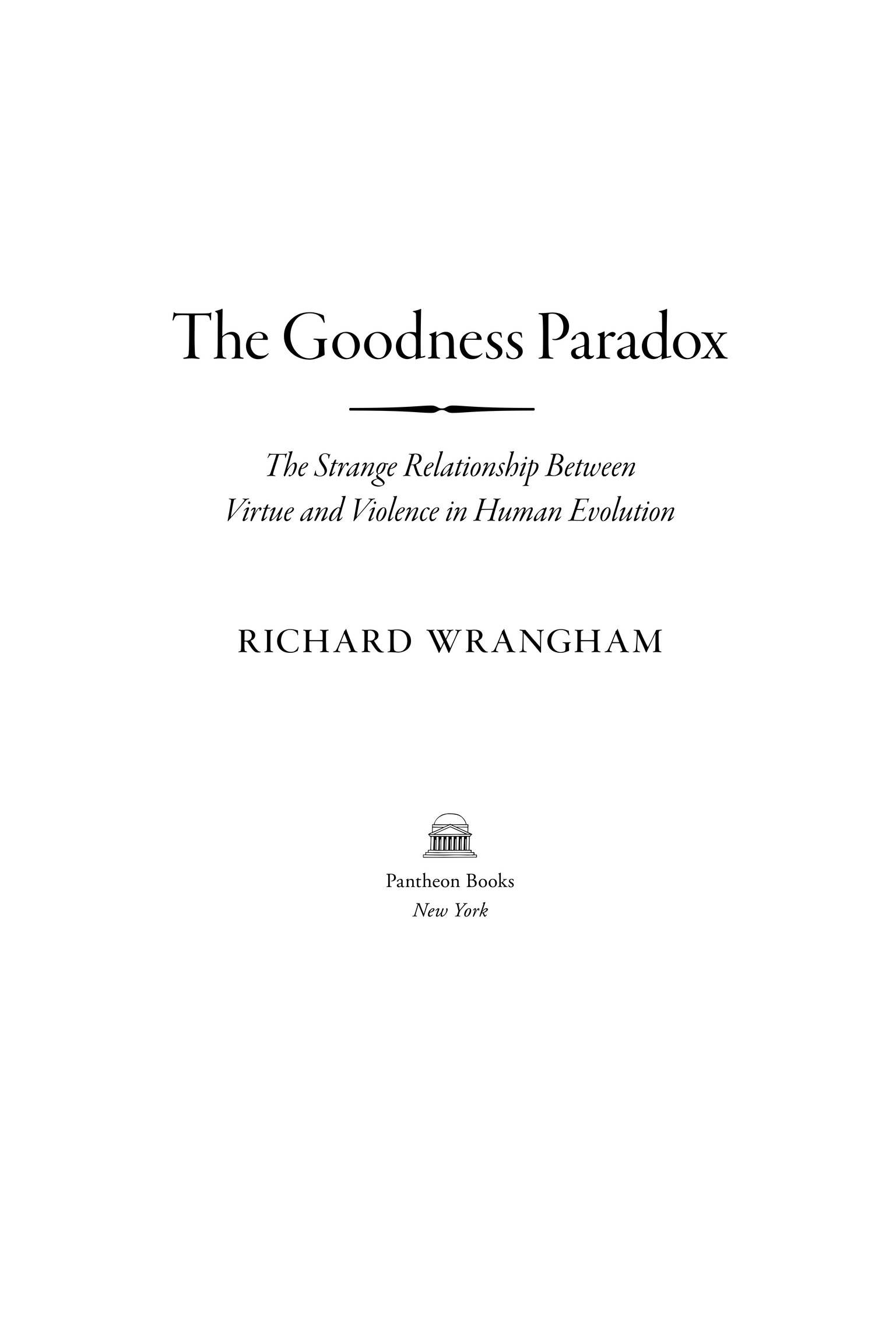Richard Wrangham has written a brilliant and honest book about humanitys central contradiction: that we are capable of mass murder but live in societies with almost no violence. No other species straddles such a wide gap, and the reasons are staggeringly obvious once Wrangham lays them out in his calm, learned prose. This book is science writing at its best: lucid, rational, and yet deeply concerned with humanity.
This will prove to be one of the most important publications of our time. Fully supported scientific information from many directions leads us to a new and compelling analysis of our evolutionary history. Every page is fascinating, every revelation is unforgettable. It will change how we see ourselves, our past, and our future.
This is the most thought-provoking book I have read in years. In clear, elegant prose, drawing on riveting data and vivid scenes gathered from species all over the world, renowned anthropologist Richard Wrangham examines the issues most central to human morality. The Goodness Paradox is a breakthrough that deserves careful reading, thoughtful consideration, and lively debate among all those who care about our evolutionary history and the future of human morality.
ALSO BY RICHARD WRANGHAM
Catching Fire: How Cooking Made Us Human
Demonic Males: Apes and the Origins of Human Violence
(with Dale Peterson)
Copyright 2019 by Richard Wrangham
All rights reserved. Published in the United States by Pantheon Books, a division of Penguin Random House LLC, New York, and distributed in Canada by Random House of Canada, a division of Penguin Random House Canada Limited, Toronto.
Pantheon Books and colophon are registered trademarks of Penguin Random House LLC.
www.pantheonbooks.com
Library of Congress Cataloging-in-Publication Data
Name: Wrangham, Richard W., [date] author.
Title: The goodness paradox : the strange relationship between virtue and violence in human evolution / Richard Wrangham.
Description: First edition. New York : Pantheon Books, 2019. Includes bibliographical references and index.
Identifiers: LCCN 2018028837.ISBN9781101870907 (hardcover : alk. paper). ISBN9781101870914 (ebook).
Subjects: LCSH: Human evolution. Human behavior. Aggressiveness.
Classification: LCC GN281.4 .W73 2019 | DDC 155.9dc23 | LC record available at lccn.loc.gov/2018028837
Ebook ISBN9781101870914
Cover design by Kelly Blair
v5.4
ep
For Elizabeth
Contents
Preface
At the start of my career, I would have been surprised to learn that fifty years later I would be publishing a book about humans. In the 1970s I was privileged to be a graduate student working in Jane Goodalls research project on chimpanzees in Tanzania. Spending whole days trailing individual apes in a natural habitat was a joy. All that I wanted to do was study animal behavior, and in 1987 I launched my own study of wild chimpanzees in Ugandas Kibale National Park.
My bucolic research was disturbed, however, by discoveries that were too intriguing to ignore. Chimpanzees exhibited occasional episodes of exceptional violence. To shed an evolutionary light on this behavior, I compared chimpanzees with their sister species, bonobos. In the 1990s, research on bonobos was beginning in earnest. Chimpanzees and bonobos were proving to be an extraordinary duo, bonobos being much more peaceful than the relatively aggressive chimpanzees. In various collaborations that I describe in this book, but most particularly with Brian Hare and Victoria Wobber, my colleagues and I concluded that bonobos had diverged from a chimpanzee-like ancestor by a process that was strongly akin to domestication. We called the process self-domestication. And since human behavior has often been considered similar to the behavior of domesticated animals, the insights from bonobos suggested lessons for human evolution. The key fact about humans is that within our social communities we have a low propensity to fight: compared to most wild mammals we are very tolerant.
I was acutely aware, however, that, even if humans are in some ways notably unreactive, in other ways we are a very aggressive species. In 1996, in a book called Demonic Males: Apes and the Origins of Human Violence, Dale Peterson and I described evolutionary explanations for similarities in aggression between chimpanzees and humans. The pervasiveness of violence in human society is inescapable, and the evolutionary theories explaining it seem sound. So how could our domesticated qualities and our capacity for terrible violence be reconciled? For the next twenty years or so, I grappled with this question.
The resolution that I describe in the following pages is that our social tolerance and our aggressiveness are not the opposites that at first they appear to be, because the two behaviors involve different types of aggression. Our social tolerance comes from our having a relatively low tendency for reactive aggression, whereas the violence that makes humans deadly is proactive aggression. The story of how our species came to combine these different tendencieslow reactive aggression and high proactive aggressionhas not been told before. It takes us into many corners of anthropology, biology, and psychology, and will undoubtedly continue to be developed. But I believe that it already offers a rich and fresh perspective on the evolution of our behavioral and moral tendencies, as well as on the fascinating question of how and why our species, Homo sapiens, came into existence at all.
Much of the material in this book is so new that it has been published only in scientific papers. My goal here is to make this richly technical literature and its far-reaching implications more accessible. I approach the topic through the eyes of a chimpanzee-watcher who has walked, watched, and listened in many habitats of East and Central Africa. Those of us privileged to have spent days alone with apes have felt touched by Pleistocene breezes. The romance of the past, the story of our ancestors, is a thrill, and innumerable mysteries remain for future generations seeking the origins of the modern mind in deep time. Enlarged understanding of our prehistory and of who we are will not be the only reward. Dreams inspired by the African air can yet generate a stronger and more secure view of ourselves, if we open our minds to worlds beyond those that we know well.
Introduction
Virtue and Violence in Human Evolution
A DOLF H ITLER, WHO ordered the execution of some eight million people and was responsible for the deaths of many millions more, was said by his secretary Traudl Junge to have had an agreeable, friendly, and paternal manner. He hated cruelty to animals: he was a vegetarian, adored his dog Blondi and was inconsolable when Blondi died.
Pol Pot, the leader of Cambodia whose policies killed maybe a quarter of his countrys people, was known to his acquaintances as a soft-spoken and kindly teacher of French history.
During eighteen months in prison, Joseph Stalin was always amazingly calm and never shouted or swore. In effect, he was a model gentleman-inmate, not obviously the kind of person who would later annihilate millions for political convenience.

